12 Actionable Content Marketing Tips For Small Businesses
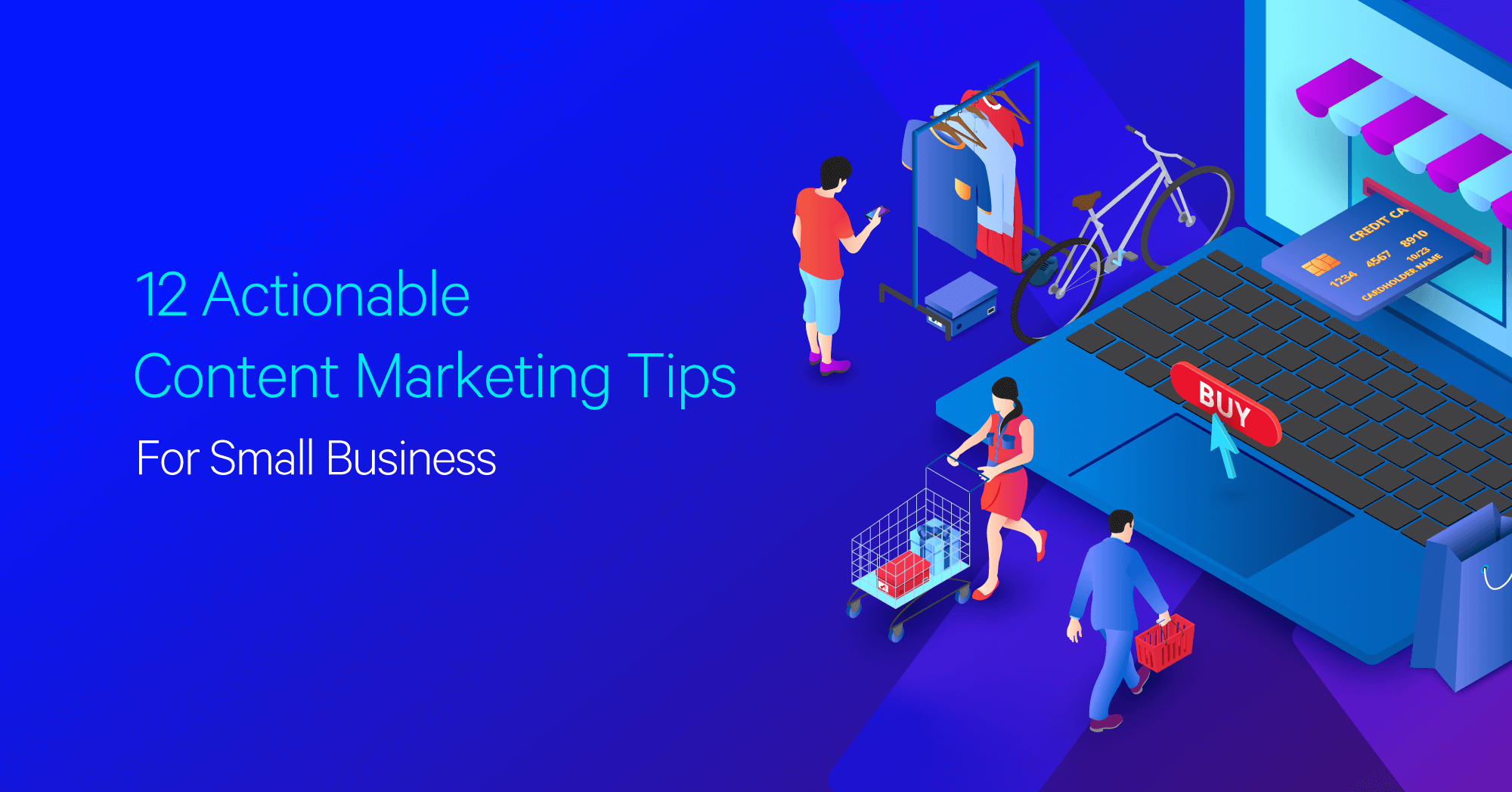
Hand off the toughest tasks in SEO, PPC, and content without compromising quality
Explore ServicesSEO for small businesses is something that (most) SMBs should be taking advantage of.
Most small businesses have trouble keeping up with the paid advertising budgets of big companies on Google or Facebook.
But SEO is a big equalizer to help you compete with bigger companies in your local market.
When it comes to SEO, the best strategy to invest most of your time and energy is with content.
Content marketing for small business is something that can be done effectively without breaking the bank. It takes a big commitment of time, but there are lots of tools and tips to make it easier.
Want to know how your small business can launch an effective content marketing campaign? We wrote this guide to help get you started.
What Is Small Business Content Marketing?
Content marketing is a strategy that focuses on planning, creating, and distributing content online.
It uses in-depth research to create relevant and high quality content for a very targeted audience. The goal is to attract customer interest with different types of content that they will engage with.
For small businesses, you are already experts in your field. You know the questions customers ask you, and what their pain points are.
Quality content + SEO research ✍️
You tell us the keywords you want to target, and we’ll analyze the SERPs, research your keywords then write the content your audience (+ Google) wants to see.
Content marketing allows you to get your expertise in front of your audience as they’re shopping around online. You can convince them that you are an authority they can trust so they become a customer.
How Can SMBs Benefit from Content Marketing?
There are a lot of benefits that content marketing has to offer small and medium sized businesses.
If you’re not sure that it’s worth the investment of your time and money, here are all the rewards you can get:
- More Targeted Traffic (aka Bring in MORE Customers) – get more users to your website who are actively looking for the product or service you’re selling.
- Get in Front of New Customers – be the first business to appear in the search results whenever a new potential customer starts their buying journey.
- Build Brand Awareness – establish trust and authority that customers have in your business after they consume your content.
- Improve Conversion Rates – create content that helps drive more sales for your business.
- Beat Your Competitors – steal customers away from your competitors as their customers see and trust your business more.
- Grow Your Business (For the Long Term) – establish your business in the online space to attract more traffic and customers for years to come.
Small businesses can achieve these goals through content marketing without needing a huge budget.
ROI of small biz content marketing
But is content marketing worth it for small businesses?
The purpose of content marketing is to greatly improve the SEO of your website. While there are other means, content is still one of the biggest SEO rank factors out there.
Want to know why SEO and content marketing are so important? Because search engines rule the internet for advertising.
Google alone has over 3.5 million searches every day, and as of May 2020 it had 92% of the global search share.
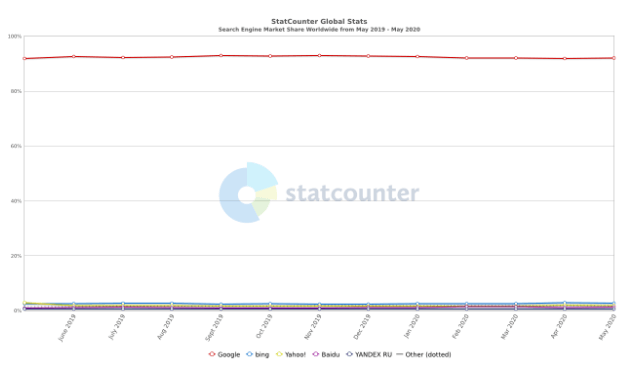
Source: https://gs.statcounter.com/search-engine-market-share
Getting your website ranking in the top few results for searches relating to your business represents a huge opportunity. SEO has no major cost like paid advertising, and once you maximize your rankings you can reap the rewards for a long time.
Here is the average conversion rate of organic traffic to a business website, broken down by industry:
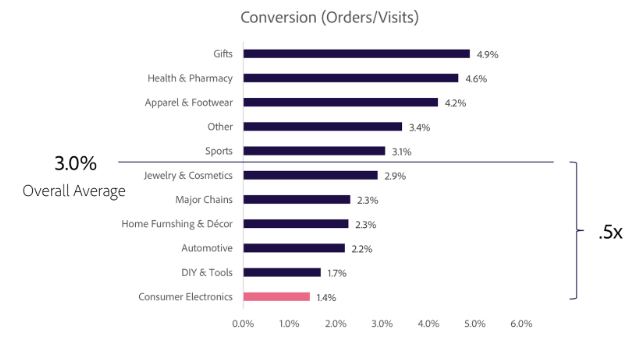
Source: https://www.smartinsights.com/ecommerce/ecommerce-analytics/ecommerce-conversion-rates/
So if your business sells health products, you can expect around an average of 4.6% of organic website visitors becoming customers. So for every 1,000 searches that people in your market make for health products you sell, you can expect 46 customers.
Keep in mind, even businesses in smaller cities will appear in thousands of searches every month. That is a massive amount of potential customers coming from organic searches that you didn’t have to pay for.
12 Content Marketing Tips For Small Businesses
If you’re sold on the idea that content marketing can help your small business, you might not know how to get started.
Here are 12 of the best content marketing tips to help small businesses.
1. Understand your target audience (before creating content)
The ultimate goal of your content marketing campaign is to appeal to your target audience. These are customers in your market who are actively shopping for the kind of product or service you can offer.
You need to know why your typical customer comes to your business: their needs, their pain points, their questions, their concerns, and so on. Then you need to write content that specifically addresses all of that in a way they find interesting, so they will engage with it.
In short, you need to write content that is specifically designed to turn a shopper into a customer. The rest of this guide will help you figure out how to do that.
2. Make a content plan
The first step is to create a carefully researched and structured content plan. You cannot have a successful content marketing campaign if you just start writing content as it comes to mind. Remember point #1: you need to fully understand your audience and what they find interesting.
This means doing a lot of research. Find out the keywords and topics they search for. Look at the top ranking content that they click on. Check out social media to see the kinds of content that goes viral among your customers.
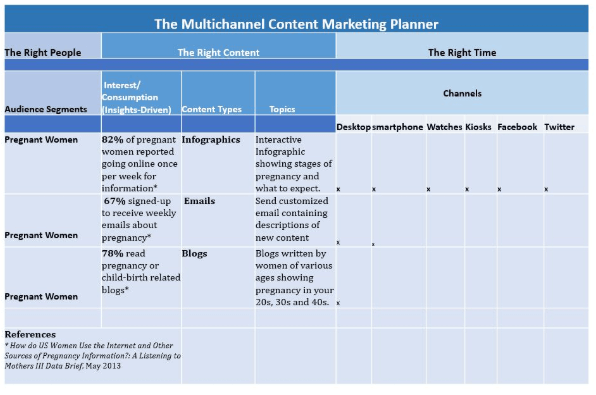
Source: https://contentmarketinginstitute.com/2017/12/content-tips-templates-checklists/
Make a complete list of all the topics they engage with the most, then plan out all the pieces of content you need to cover it all. Make sure you also pay attention to the types of content people engage with based on the specific topic. It could be an article, a video, an infographic, and so on.
3. Publish regular content
This may seem like an easy tip, but it isn’t.
Having a completed content plan helps, because you will know everything you need to create. But you also need to have the commitment to regularly creating and publishing content. It doesn’t have to be every day or even every week.
Pick a schedule that you think you can comfortably manage and stick to it.
4. Update old content
Check your website’s historic analytics data.
If you had content that performed great in the past, you can often update them with the most up to date information and style. These are easier wins than completely creating new content from scratch.
If it worked before, it can work again with a little tweaking.
5. Create evergreen content
The best content that will help drive business long-term is ‘evergreen content’.
This refers to anything that is timeless, about topics that people will always search for. That means there will be a continuous audience that doesn’t disappear over time.
An example of timely content is anything based on news, specific events or dates, and so on.
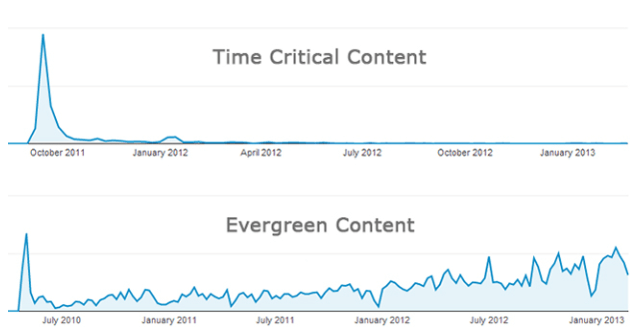
6. Repurpose your content
Not everyone will engage with the same kind of content at the same levels.
Some people prefer watching videos to reading an article, and vice versa. Some people like seeing information broken down visually, with graphs and charts. When you create a great piece of content, try repurposing the same general information into other mediums.
You can then publish them on appropriate platforms, such as YouTube for videos and Pinterest for images.
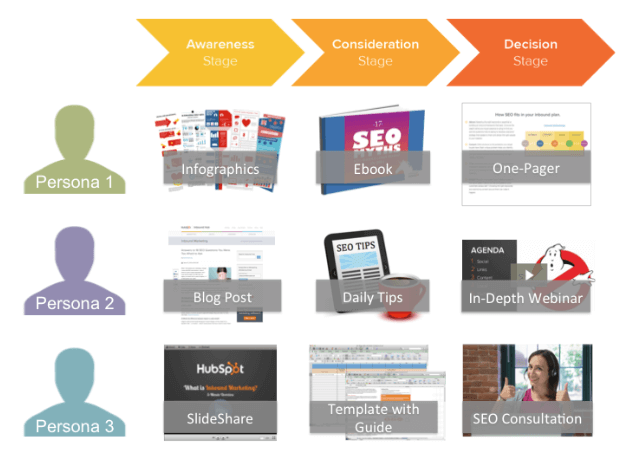
Source: https://neilpatel.com/blog/does-repurposing-content-work-heres-a-data-driven-answer/
7. Reverse engineer your competitors
If you’re struggling to think of what content works best for your audience, look at what your competitors are doing. If any of them have already invested in content marketing, you’ll see some great examples of what they did to succeed.
This can be a great way to find inspiration of what content to create, in what mediums, and so on.
8. Don’t forget SEO basics
Never forget to optimize your content for SEO.
You can create a great piece of content, but if search engines can’t crawl or understand it then it won’t appear in searches. Make sure you cover specific topics and keywords that people search for.
Avoid overly technical terms that customers don’t use. Use meta titles, descriptions, image alt tags, and other technical factors that help improve SEO.
9. Learn from others
Start following the big influencers in your industry. Sign up for their newsletters, follow them on social media, and look at their content online. You can get an idea for what works best by the people who are the most successful at it.
You can also learn from others in different spheres that can still help your content marketing. That can be writing experts, content marketing professionals, SEO specialists, and so on.
10. Quality > quantity
Publishing regular content is important, but not if it comes at the expense of quality. It is better to publish less frequently if it means that what you do create is more in-depth, better researched, and better optimized for SEO.
This is partly because longer, more comprehensive content tends to perform better than shorter pieces.
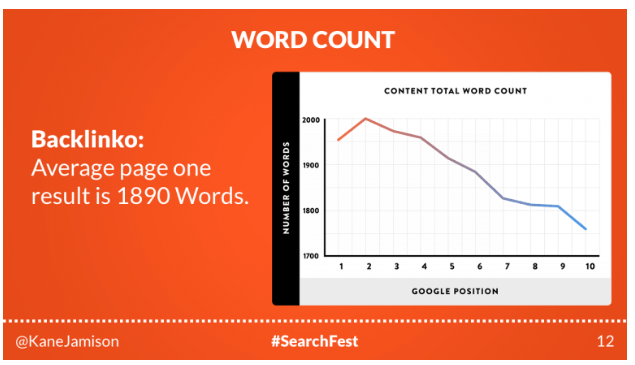
Source: https://www.contentharmony.com/blog/content-success-factors/
If that means you adjust your publishing schedule from once a month to once every two months, so be it.
11. Track your progress
You should always see progress in terms of traffic and conversions from your content marketing.
If you’re not, you need to re-think your strategies and make the necessary adjustments. If you don’t track your progress you won’t be able to optimize your campaign to perform even better in the future.
12. Measure and learn (aka do more of what works)
You should never publish a piece of content and never check its performance. You should be continually checking all the data you can about how your content performs — both for individual pieces and as a whole.
You can learn and improve a lot by analyzing what you’ve done.
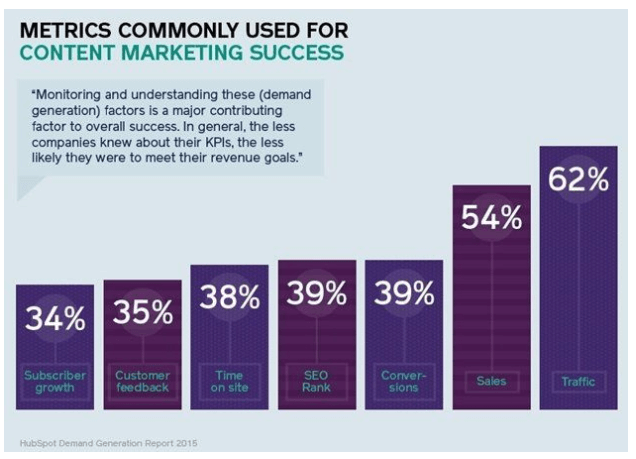
Source: https://www.pinterest.ca/pin/206673070380901937/
Maybe you see that content in one medium doesn’t do as well, so you don’t create them as often. You can identify one strategy or topic that converts customers better than others, so you can focus on that more.
Summary
Content marketing is a great strategy for small businesses to drive business online. It can take a big investment in time, but does not require a big budget to perform well. When you follow the right process, publish content regularly, and focus on quality you will have success.
Checkout this list of 9 Places to Advertise Your Business Online.
You can use a variety of tools and strategies to learn how to write great content for your audience. Don’t worry about meeting all of your goals right away. This is a longer process, and you will improve with practice.
When you get good at it, you will set your business up for long-term success with a steady stream of regular customers.
Hand off the toughest tasks in SEO, PPC, and content without compromising quality
Explore ServicesWritten by Aaron Haynes on August 17, 2020
CEO and partner at Loganix, I believe in taking what you do best and sharing it with the world in the most transparent and powerful way possible. If I am not running the business, I am neck deep in client SEO.





